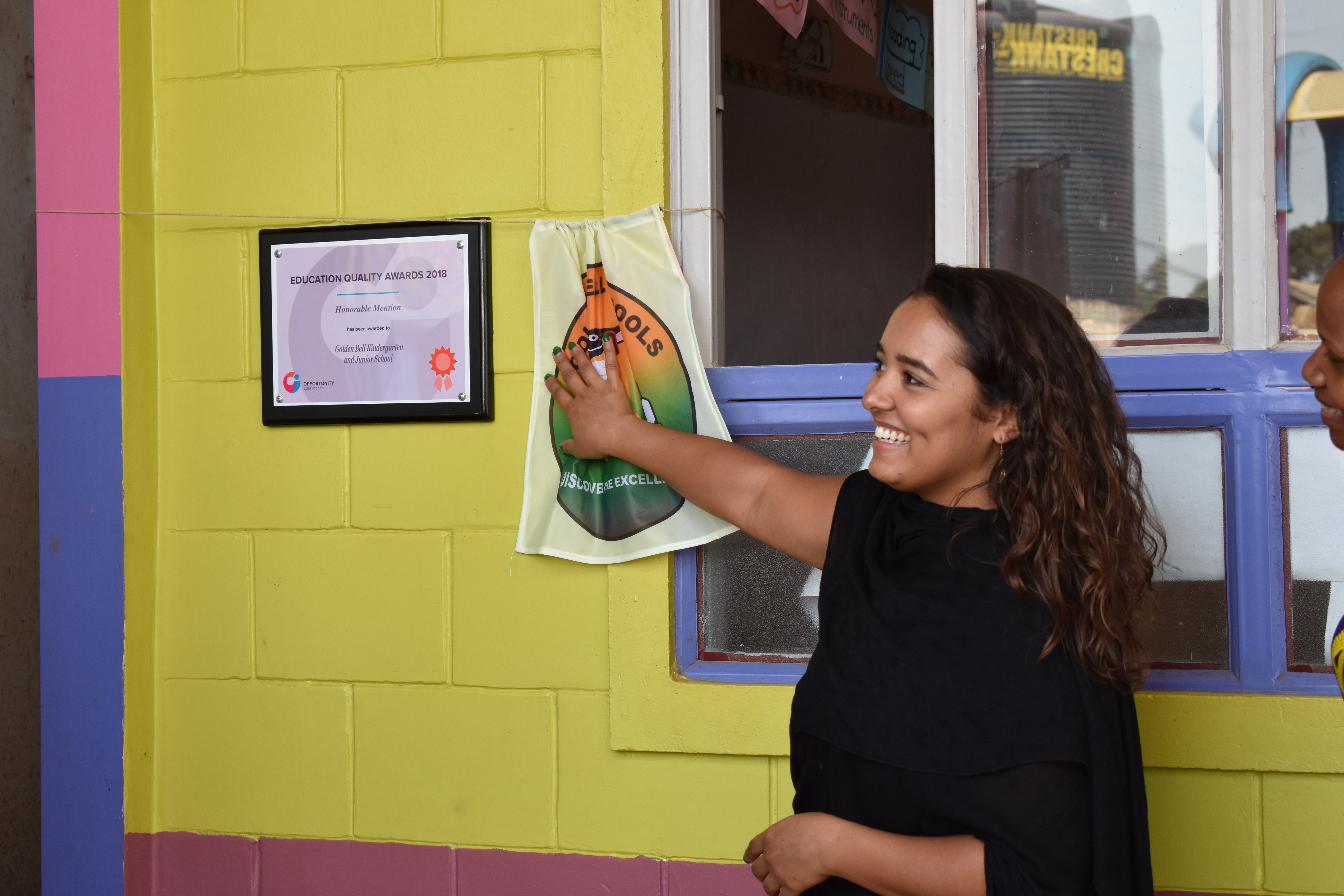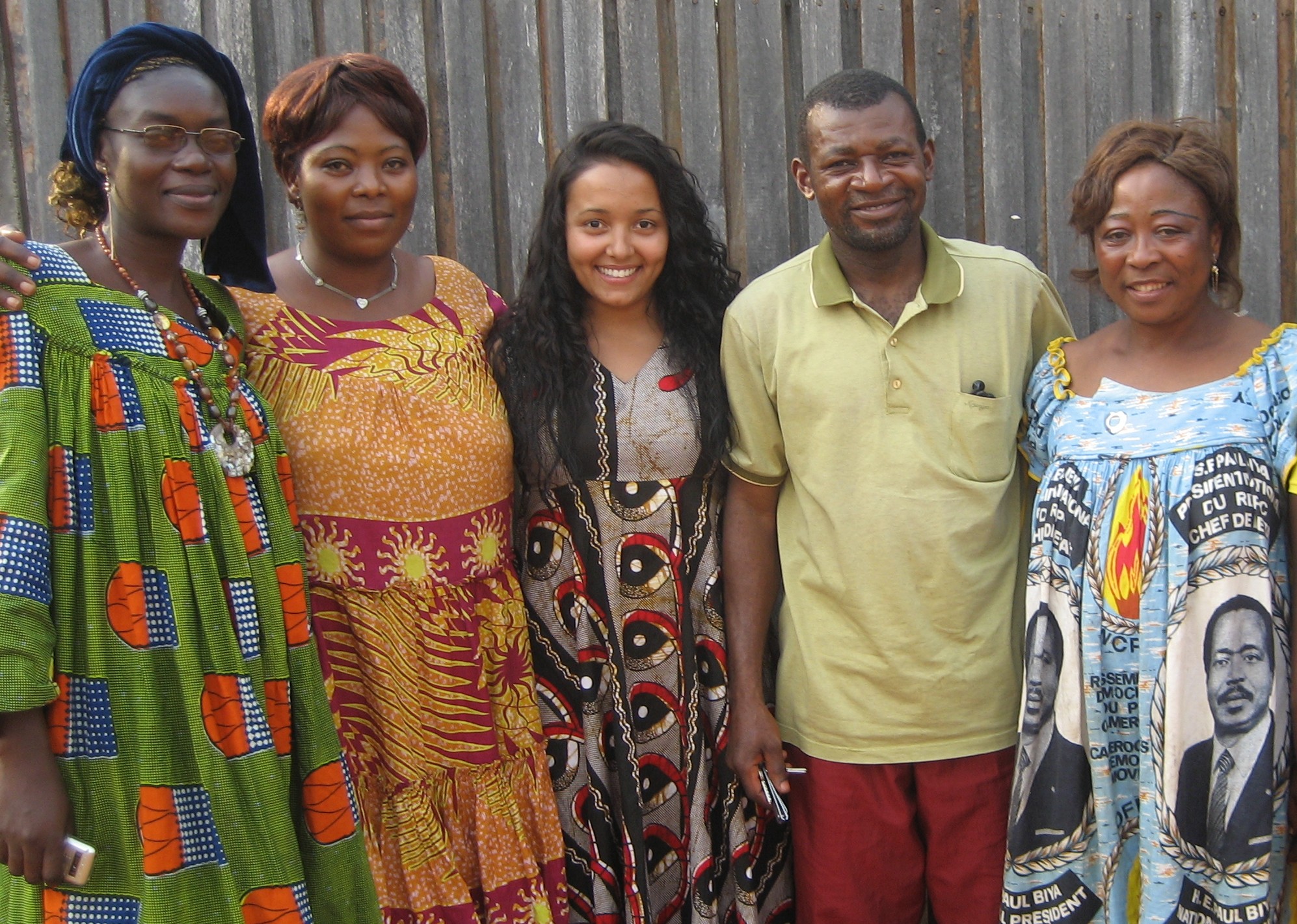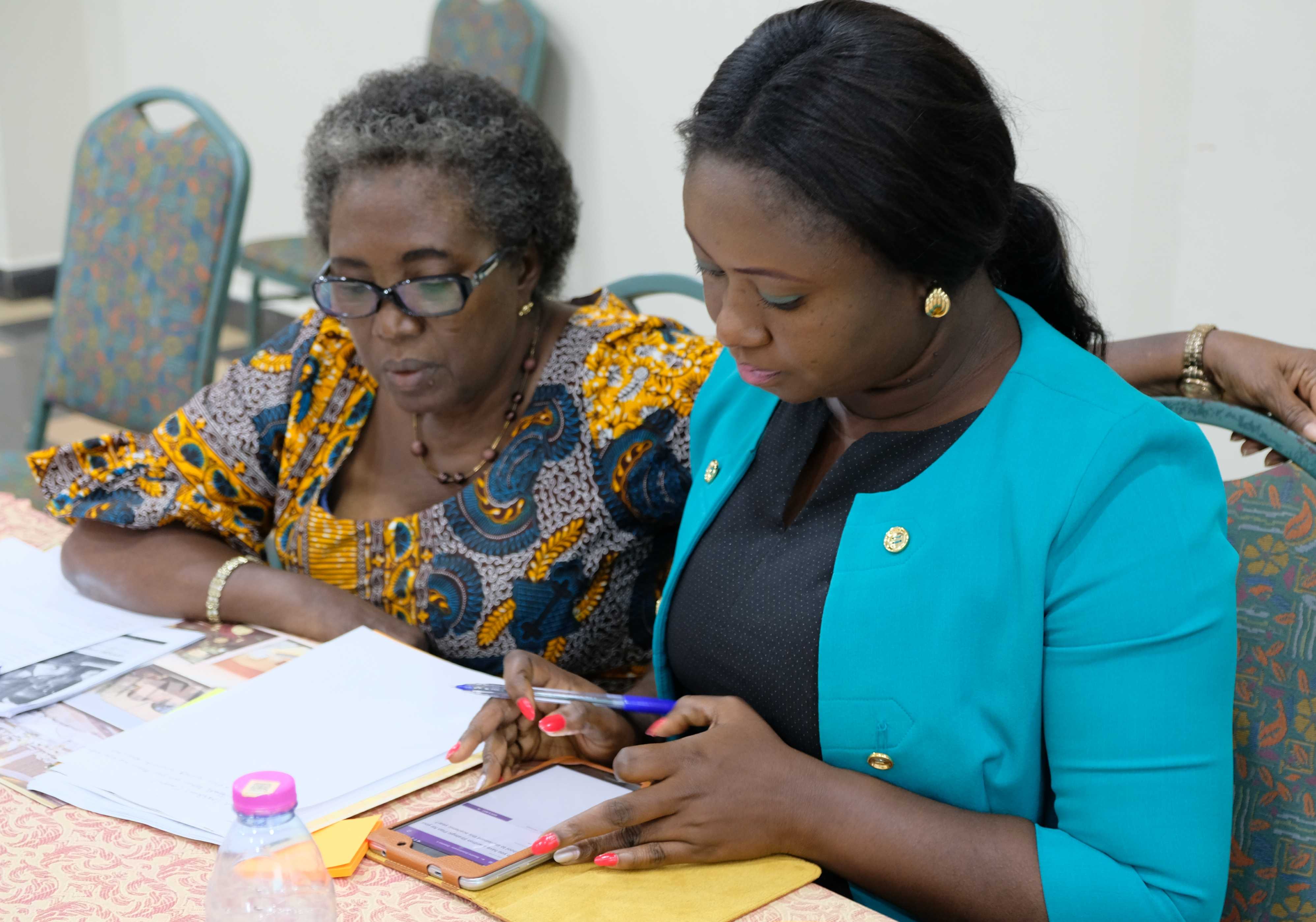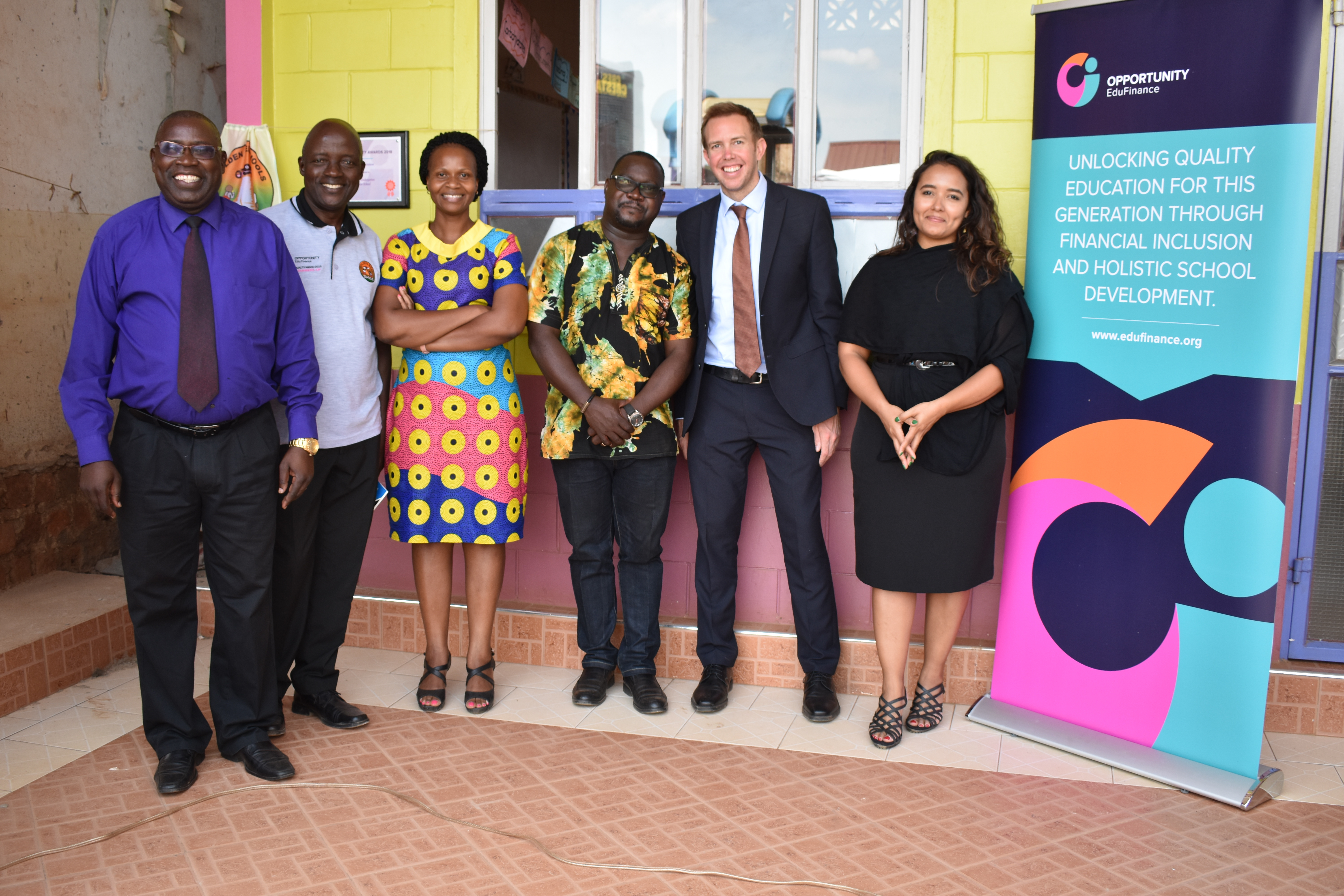Renée McAlpin: Why I’m taking on the global education crisis
 Renée presents plaque to EduQuality Awards runners up, Golden Bell School (2019)
Renée presents plaque to EduQuality Awards runners up, Golden Bell School (2019)
Opportunity EduFinance is made up of a dedicated global team with diverse experience and expertise. Our team is essential to our collective mission to get more children into better quality schools. We want to share their passion and experience, and how this motivates their day-to-day work. This week we hear from EduQuality Manager, Renée McAlpin, about her education and professional journey, navigating the education sector to find where she has the greatest value-add to one of the most complex global challenges. She shares a path-changing chance encounter and the importance of seeing beyond the global education statistics.
Education is fundamental
I love learning and I admire how the brain works. When I was in school, I was always the last one in the library before they turned off the lights. And my education and development was prioritised by my parents. When my father recognised I was attending a school in a district in Idaho that did not ensure an inclusive learning environment, my parents knew we had to move. We had a choice. Poverty eliminates choice for many parents and children around the world. We had enough to rent a moving van, load our possessions, and head cross-country to find a school district that offered academically rigorous and inclusive programs. Having worked and lived in low- and middle-income countries (LMIC), I know how lucky I was to have a choice in schooling. In the countries where I work now, with Opportunity EduFinance, there are incredible entrepreneurs providing families with more choices by establishing quality affordable private schools where they see a need and demand in their communities.
Florida, where I spent my formative years, shaped my understanding and appreciation of the importance of education and finance as fundamental tools for inclusion and development of human capital. While at Florida State University, I worked with migrant farm workers from Central America teaching night classes in functional English, supporting their social and economic integration. After graduating in 2008 – just as the housing bubble burst – I took a job refinancing federal loans for veterans facing foreclosures. When faced with losing more than the roof over their head, I hoped that lower fixed interest rates and better loan terms might help them weather the remaining fall out that followed with the proceeding recession.
My job as a loan processor was brief. I quickly joined the United States Peace Corps serving as an English teacher in a remote village in Cameroon. This was a rewarding and formative experience, teaching over 400 students. As a teacher, I became aware that the system I was working within prevented me and my colleagues from doing our jobs – and ultimately kept students from learning. As a 24-year old wanting to understand these challenges and how they might be better overcome, I returned to school to study the micro and macro systems that teachers and schools operate within. I wanted to know where I could have the greatest value-add.
 Renée with Vice Principal and her friends from the village she taught in, Cameroon (2011)
Renée with Vice Principal and her friends from the village she taught in, Cameroon (2011)
Growing and finding my place in the global education field
I’ve had the privilege of working with some really smart people doing incredible work. From BRAC, one of the largest microfinance NGOs in the world, to the Brookings Institution, a public policy think-tank in Washington D.C. Working in the global education sector at the micro and macro-levels over the last 10 years, across four continents, what has always inspired me most is working with educators, schools, and communities. In the fall of 2017, I had a chance encounter with the founder of Opportunity EduFinance, Nathan Byrd. One evening in Washington D.C., a friend from New York invited me to a conference reception he was attending. I almost didn’t go, but there was a small window to connect, so I made the journey. I met Nathan, who was presenting his plans to scale the EduQuality program. Nathan was looking for someone who could take his vision to scale, creating the systems and processes to support growth. The rest, as they say, is history.
EduQuality program expansion
In my role as EduQuality Manager, I oversaw an expansion from 600 to over 1,600 schools, expanding the program to a total of eight countries. We partner with entrepreneurs of affordable private schools in LMIC across Africa, Latin America, and South Asia. Providing professional development for school leaders and teachers, we create enabling school environments to sustainably drive improvements in education quality. We foster collaborative school networks and provide guidance on school quality assessment and development planning. This work is carried out by our EduQuality team of local, field-based education specialists. It not an easy job, but they care a lot about what they do and, as they tell me, “nothing worth doing is easy.” As a manager, my primary goal is to eliminate the barriers for my team to do their job efficiently and effectively.
Taking EduQuality to scale involves mitigating challenges every day while keeping the mission clearly in line-of-sight. It’s an epic balancing act. Solving problems and finding solutions keeps us true to the skills we hope to see in our partner schools, so we continue to test new innovations to improve service delivery and impact. We are embracing EdTech by digitising Pathways to Excellence, our school assessment and development tool, along with school leader and teacher professional development courses creating a blended in-person and digital training model. This has given us the agility and flexibility to better contextualise and improve our product, aligned with national education standards and requirements, across multiple countries.
 EduQuality Digital Pilot (2019)
EduQuality Digital Pilot (2019)
My motivation
In March we launched our EduQuality programme in Kenya. A school leader came up to me and said:
“We have been working in the dark. I had no idea if I was making the right decisions. We were shooting in the dark and there was a lot of trial and error. Now we have a community of schools to work with, and Pathways to Excellence which can guide us in planning and how to evaluate those decisions. Now we have a roadmap.”
There is a gap in the system. At EduFinance, we hope to bridge that gap. In an ideal world, every education system globally could adequately provide such networks and trainings. Until this is a reality, we must remind ourselves that hard work will pay dividends. There are no silver bullets or panaceas in solving complex social challenges, but there are incredible individuals, like my colleagues. I’m proud to contribute to the mission of Opportunity – to get more children into better quality schools.
 Renée with Williams Oguttu, Senior Education Specialist; Moses Serwanga, School Owner, Golden Bell Kindergarten and Junior School; Robinah Zawedde, Head Education Specialist, East Africa; Alfred Bakyusa, former Education Finance Manager, Opportunity Bank; Scott Sheridan, Director of Operations, EduFinance - left to right - (Uganda, 2019)
Renée with Williams Oguttu, Senior Education Specialist; Moses Serwanga, School Owner, Golden Bell Kindergarten and Junior School; Robinah Zawedde, Head Education Specialist, East Africa; Alfred Bakyusa, former Education Finance Manager, Opportunity Bank; Scott Sheridan, Director of Operations, EduFinance - left to right - (Uganda, 2019)